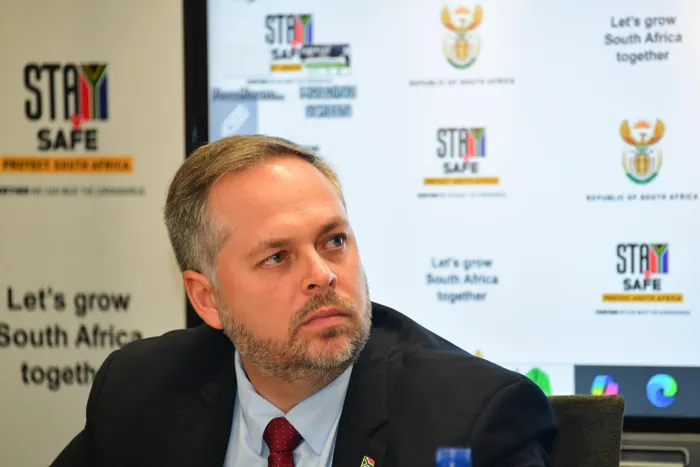Home Affairs ID verification fee hike sparks debate amid push to end ‘system abuse’
New fee structure

Home Affairs Minister Leon Schreiber described the changes as a “matter of national security, plain and simple.”
Image: Ntswe Mokoena/GCIS
The Department of Home Affairs has announced a massive 6 500% increase in the cost charged to companies for verifying identities against the National Population Register (NPR), citing “unsustainable under-pricing” that has crippled its systems and threatened national security.
The new fee structure, gazetted on Monday, will raise the cost of real-time ID verification via the Online Verification System (OVS) from just 15 cents to R10 per transaction. A more affordable R1 rate will apply to batch verifications conducted during off-peak hours.
Home Affairs Minister Leon Schreiber described the changes as a “matter of national security, plain and simple.”
“For years, financial institutions and private companies have effectively been subsidised by the state,” Schreiber said. “That model is no longer sustainable. The failure to properly fund the NPR has contributed to severe system outages and increased vulnerability to identity fraud.”
The OVS has been in use since 2013 by banks, insurers, mobile network operators and other third-party entities to verify customers' identities in real time, helping to prevent fraud and identity theft. But the department says it has been severely strained by excessive traffic and misuse, largely due to the rock-bottom cost of accessing the service.
In a statement, the department warned that the “extreme under-pricing” led to overwhelming volumes of verification requests that caused failure rates of over 50% and contributed to the notorious “system offline” problems at Home Affairs offices nationwide.
“These outages have had cascading consequences — from financial exclusion to failed document applications — and have weakened the integrity of our entire civil registration system,” the department said.
The new price structure and upgraded verification system will take effect from 1 July. The department says the upgraded OVS has already cut failure rates to below 1%, allowing for real-time verifications without delays.
The overhaul has received support from the Congress of South African Trade Unions (COSATU), which said the previous pricing created “a decades-long de facto subsidy for financial institutions.”
“This perverse arrangement resulted in the NPR being overwhelmed and Home Affairs staff bearing the brunt of public frustration,” COSATU said in a statement. “Workers have lost wages while queuing for days because of system crashes.”
However, the trade union federation warned it would closely monitor how private companies respond.
“COSATU will engage affiliates in the financial and retail sectors to ensure that banks and insurers do not use this adjustment as an excuse to increase fees on customers.”
Analysts say that while the new fee structure makes economic sense, it raises concerns about whether companies will pass the additional costs on to consumers.
Despite this, the department remains firm in its stance that the upgrade is necessary to restore public trust and national data security.
“The state has a duty to ensure the NPR functions as a modern, secure system,” said Schreiber. “This reform puts us on the right path — for citizens, for financial integrity, and for the future of digital public services in South Africa.”